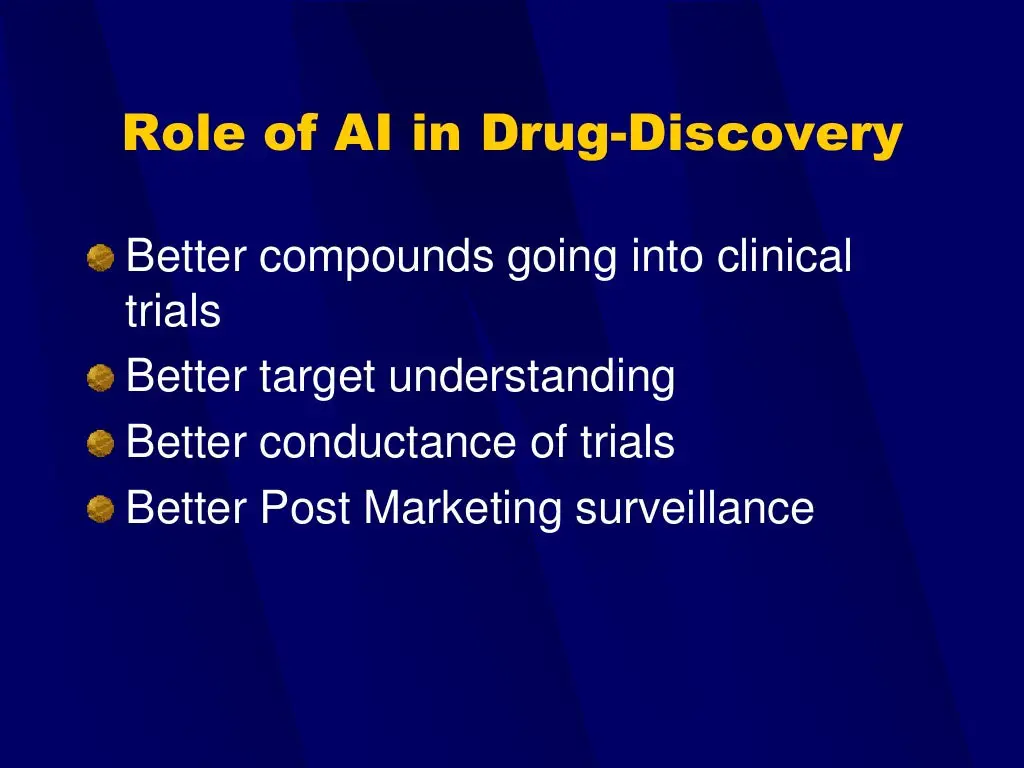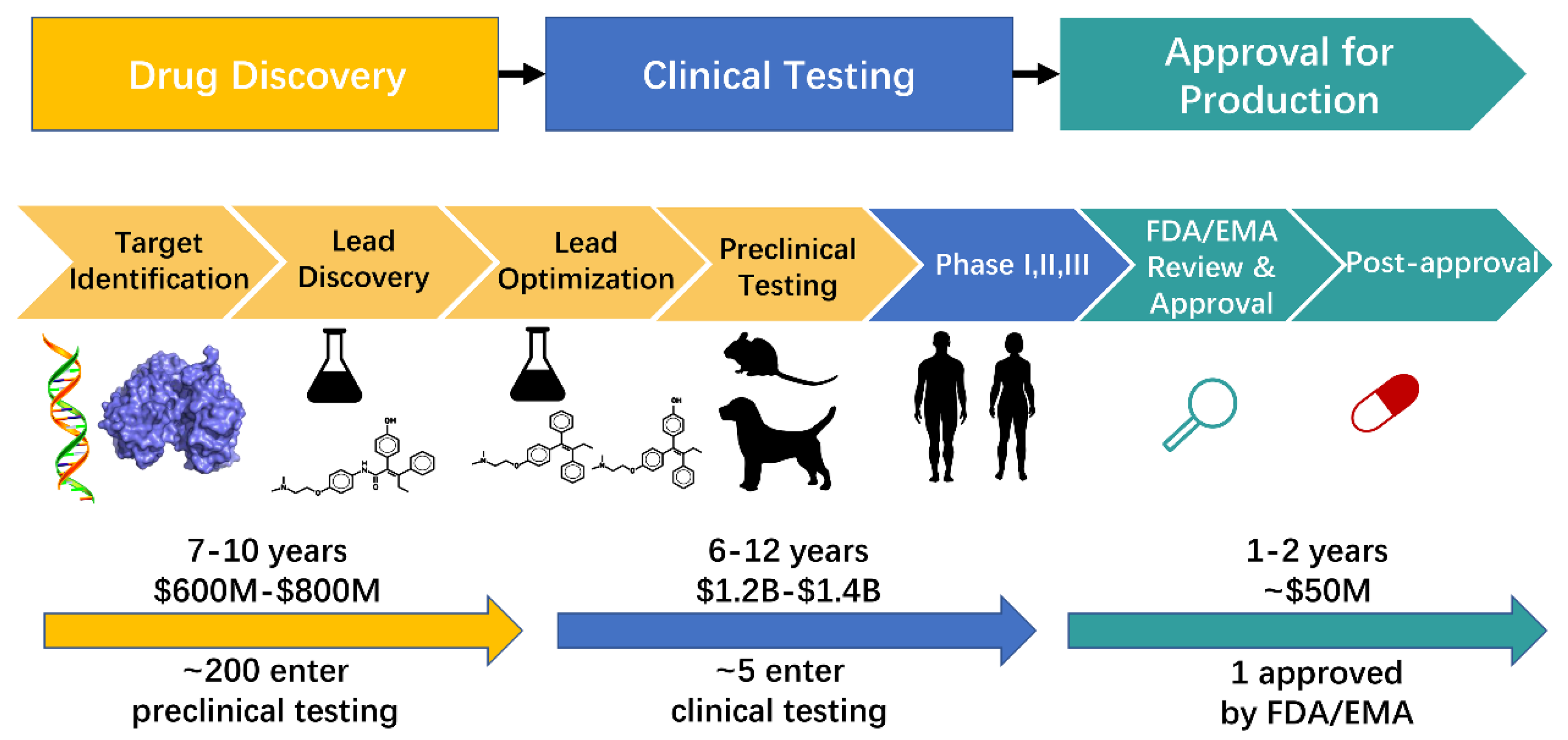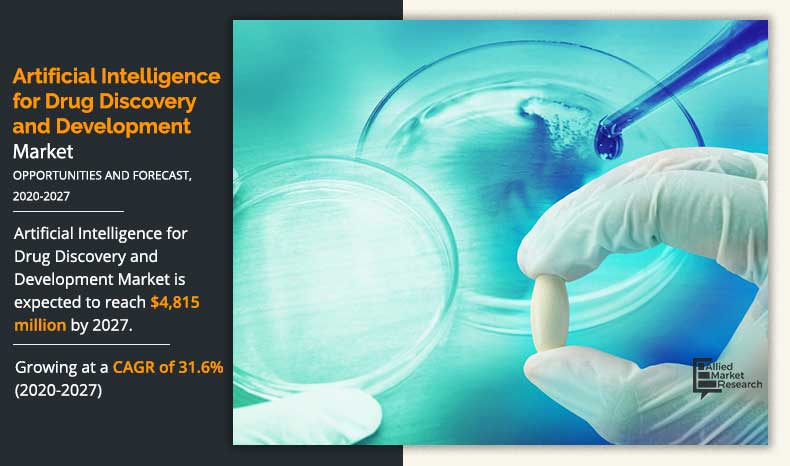The Role of AI in Drug Discovery and Development

Executive Summary

The integration of artificial intelligence (AI) into the drug discovery and development process promises to revolutionize the field, enhancing efficiency, reducing costs, and accelerating the delivery of innovative treatments. This article explores the multifaceted role of AI in this critical healthcare domain, highlighting key applications, benefits, and future directions.

Introduction
Drug discovery and development is a complex and time-consuming process that involves extensive research, screening, and clinical trials. AI offers a transformative approach by automating mundane tasks, analyzing vast amounts of data, and providing predictive insights. Its application across the entire drug development lifecycle has the potential to streamline operations, improve drug efficacy, and ultimately save lives.
FAQs
-
What is the significance of AI in drug discovery and development?
AI empowers researchers with powerful tools to enhance decision-making, predict outcomes, and optimize processes, leading to faster drug development and improved patient outcomes. -
How does AI assist in drug target identification?
AI algorithms analyze complex biological data to identify potential drug targets that may have been previously overlooked. -
What are the benefits of using AI in clinical trials?
AI helps design more efficient clinical trials, optimize patient recruitment, monitor patient data, and predict potential adverse events, improving the overall safety and effectiveness of trials.
Subtopics
Drug Target Identification
- Machine Learning for Target Discovery: AI algorithms identify novel drug targets by analyzing gene expression data, protein interactions, and disease pathways.
- Computational Modeling: AI-based models predict the structure and behavior of potential targets, allowing researchers to focus on the most promising ones.
- Gene Editing Tools: AI facilitates the development of gene editing tools like CRISPR-Cas systems, enabling targeted modifications of genes and exploration of new therapeutic possibilities.
Lead Optimization
- Virtual Screening: AI algorithms identify potential lead compounds by computationally screening billions of molecules against a given target.
- Molecular Docking: AI predicts the binding affinity of lead compounds to target proteins, helping researchers optimize their potency and selectivity.
- Quantitative Structure-Activity Relationship (QSAR) Modeling: AI models establish relationships between drug structure and activity, enabling the prediction of new lead candidates with desired properties.
Preclinical and Clinical Trial Optimization
- Animal Model Selection: AI algorithms help select the most appropriate animal models for drug testing, reducing the risk of failures in clinical trials.
- Clinical Trial Design: AI optimizes clinical trial designs, such as patient recruitment, randomization, and outcome monitoring, ensuring efficiency and ethicality.
- Data Analytics for Safety and Efficacy Evaluation: AI analyzes clinical trial data to identify safety risks, monitor drug efficacy, and facilitate adaptive trial designs.
Drug Repurposing
- Identification of New Therapeutic Indications: AI algorithms search for existing drugs that may have therapeutic potential in new diseases, accelerating drug development and saving time and resources.
- Precision Medicine: AI enables the identification of patient subgroups that are most likely to benefit from specific treatments, paving the way for personalized drug selection and improved outcomes.
- Adaptive Trial Designs: AI algorithms guide adaptive clinical trial designs that adjust treatment regimens based on real-time data analysis, optimizing outcomes and minimizing adverse events.
Accelerating Drug Development
- Automated Data Processing: AI automates data processing and analysis, significantly reducing the time required for drug discovery and development.
- Precision Medicine for Personalized Treatment: AI promotes precision medicine by customizing treatments to individual patient profiles, improving drug efficacy and reducing side effects.
- Reduced Costs: AI-driven optimization of clinical trials and drug development accelerates time-to-market, reducing overall costs and delivering therapies to patients faster.
Conclusion
AI’s transformative impact on drug discovery and development is undeniable. Its applications span the entire drug development lifecycle, from target identification and lead optimization to clinical trial optimization, drug repurposing, and accelerated drug development. By harnessing the vast capabilities of AI, researchers and healthcare professionals can revolutionize drug discovery, reduce costs, improve treatment outcomes, and ultimately empower patients with better health and well-being.
Keyword Tags
- Artificial intelligence (AI)
- Drug discovery
- Drug development
- Drug target identification
- Precision medicine
